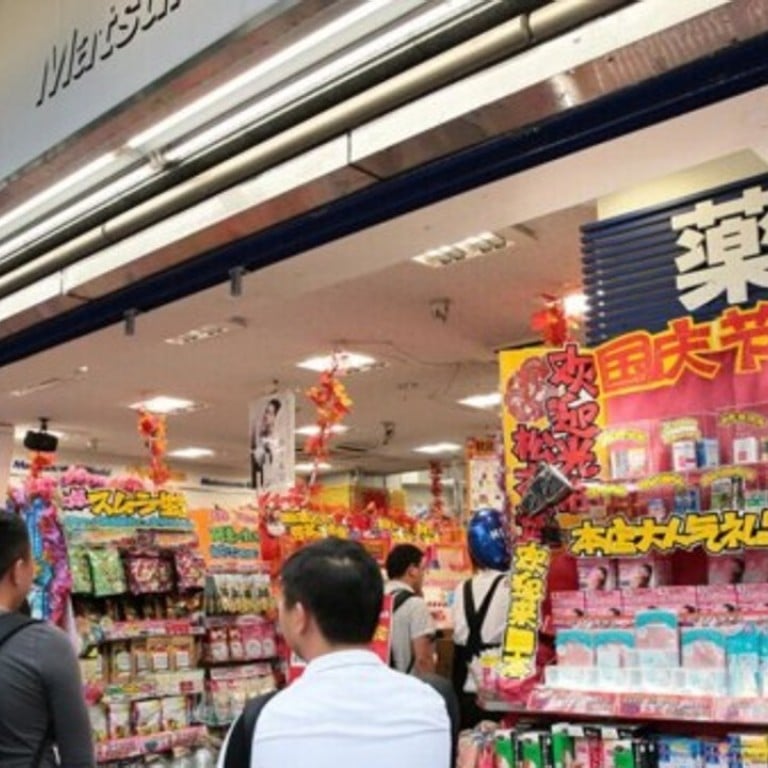
Pharmacies: Japan’s latest must-see tourist attraction (at least for visiting Chinese)
Worried about shoddy products at home, mainland travellers are stocking up on everyday medications like cough syrup during overseas trips. For their Asian neighbour, the demand has helped pull an entire market out of decline
Add over-the-counter drugs to the shopping list that mainlanders take on overseas trips, with an increasing number choosing foreign brands over domestic ones due to their perceived higher quality.
Pharmacies in Japan have become so popular with mainlanders they now offer Putonghua-speaking staff and have helped offset a long sales decline for the manufacturers of the products.
Mainlanders have already shown a penchant for overseas health supplements and medicine for more specialised ailments, scouring the internet for the best deals and placing orders with middlemen.
But they are now stockpiling foreign-made everyday medications, such as paracetamol and cough syrup and lugging them back home.
READ MORE: Why countries like China pay price in lives for baby formula dependence
Jiang Xiao, from Fuzhou in Fujian province, spent a week travelling in Okinawa last month. Aside from the usual tourist purchases, she bought eye drops, nasal sprays, pain-control medication and the country’s signature liquid adhesive plaster.

She said mainlanders didn’t trust the domestic equivalents. “Mainland pharmaceutical products have many problems. For example, I heard that some drugs contain excessive antibiotics,” she said.
Mainland authorities have had some success in tackling counterfeits in drug manufacturing, closing down home factories that often operate amid poor hygienic conditions. But as more consumers travel abroad with greater frequency, they would rather add some stops at pharmacies to their itineraries than take a chance on a domestic brand.
The flood of interest by Chinese consumers prompted Japan’s Home Medicine Association to launch a Chinese-language website last year, providing information on 80 products from 26 membership companies. The association consists 90 per cent of the nation’s over-the-counter drug manufacturers that control 30 per cent of the market.
“The OTC drug market in Japan has long been on a downward trend, but the surge in purchasing by foreign customers has boosted sales by about 110 per cent in 2015 over the previous year,” Fujii Ryuta, the association’s vice-president, told South China Morning Post.
China has become the largest source of foreign visitors to Japan, with the number doubling to five million last year, according to the Japan National Tourism Organisation, the Oriental Morning Post reports.
READ MORE: Japanese ‘toilet seat frenzy’ prompts calls to buy local
Their total consumption increased by 2.5 times, year on year, to 1.4 trillion yen, accounting for 40 per cent of all foreign tourists spending.
Pharmacies across Japan are posting advertisement not only in Japanese but also in Chinese, while some stores are hiring more Putonghua-speaking staff to better cope with the demand.
Fujii said the consumers appreciated products that were strictly regulated with the needs of the end user carefully considered.
“The packaging of Japanese commodities are genuinely colourful, beautiful and moreover very functional, and the information ... is put on the outside, which gives customers a sense of confidence,” he said. “As for OTC drugs, it’s the same as well.”

Last month Wang Xuehai, a political adviser in the central province of Hubei who is also the chairman of Humanwell Healthcare Group, said it was a shame for Chinese companies to see people go to Japan to buy simple cold medication, Cnhubei.com reports.
Individual traders on the mainland are trying cash in on the demand by buying overseas medication for resale at home, but they run afoul of the law without the proper permits.
In 2014 a man operating an online shop based in Ningbo in the eastern province of Zhejiang was sentenced to two months in jail, with six months suspended, for selling children’s cough and cold medication bought from the United States, the Ningbo Evening News reported.
It’s illegal to sell drugs on the mainland without a certificate, said Li Hu, an analyst from industry research firm Zero Power Intelligence Group.
“If the agent sells the drugs [bought from abroad], they will be charged,” he told the Post.

